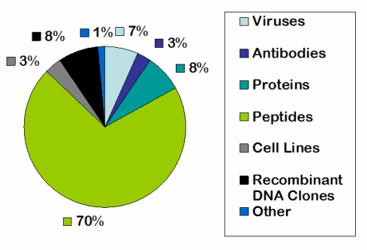|
Around the world more than 90% of people living with HIV/AIDS come from developing countries. Every year more and more people join them; 13.9 million people have already died from the epidemic, most of them in developing countries. The differences between the countries in the north and those in the south have never been illustrated more starkly than this fact about the HIV/AIDS pandemic. The poorer a country, the less likely it will have the resources to offer effective prevention programmed for its
people. The world's nine most affected countries are all Africa and in these countries at least 10% of their populations are infected with HIV and life expectancies have been shortened by an appalling 17 years. Other countries where communities of drug users, sex workers and gays and transsexuals are ignored and neglected, they are more vulnerable to becoming infected without also having access to the care and treatment necessary to prevent their early deaths.
Furthermore, the right to the maintenance of good health even if one is infected is often impossibility in many of the countries with severe epidemics. Most people living with HIV/AIDS have no access to drugs that will keep their infection in control. This is usually attributed to the high cost of drugs but access to treatment in many countries is also impeded by ignorance, by superstition and by discrimination. Even in a relatively well-off country like Malaysia, out of over 30,000 + Malaysians Living with HIV/AIDS, less than 1000 are in regular treatment, partly because of lack of knowledge and partly because of cost. In the case of incarcerated persons such as prisoners and those in drug rehabilitation centers, treatment is often low priority.
HIV is a silent virus whose presence cannot be detected without blood tests. But in developing countries, few come forward for testing often because of fears about confidentiality. Their fears are usually justified. Recently the suicide of an HIV-positive couple was sensationalized in the newspapers where not only their names but also those of their child and parents were published. Stories like this do not encourage anyone to come forward to be tested because of the fear of the consequences such lack of respect for confidentiality can bring. There may be laws and rulings about confidentiality but if they are not enforced strictly, nor those who disregard them punished, then people will not be encouraged to check their status. Without truly knowing one’s status and acquiring information on how to not spread the virus, people with high risk behaviors may contribute to the further spread of the epidemic.
All these factors underscore the need for the legal and ethical perspective on HIV/AIDS, principally to protect the human rights of those who are particularly vulnerable to infection because of their marginalization as well as the rights of those who have become infected. In more developed countries, laws to protect the rights of People Living with HIV/AIDS to employment and to treatment have been instituted and have gone a long way towards preventing the spread of the virus by simply bringing these issues out into the open. In developing countries however, particularly where marginalized communities and those living with the virus have no voice, discussions about such laws are still minimal because many in the legal communities themselves are not aware of the need for them. However there are bright spots in this issue particularly in India where human rights advocates are taking up the cause of HIV/AIDS going to court to uphold the right of People Living with HIV/AIDS to marry for instance. Hopefully the success of one country will encourage others to also fight for these rights.
Still, for Asia, where the pandemic is late in coming and where it is projected to affect more people than any other part of the world, effective responses to HIV/AIDS are still slow and inadequate. These responses are mired in traditional health perspectives and neglect to look at the questions of health as a basic human right. Human rights advocates would do well to join the fight against AIDS by contributing their perspectives to this question. In this way, not only will this new perspective refresh the whole issue of human rights but also a global pandemic, which is killing more people than any war, can be curbed.
The Story of CHINESE MASTER Research in KL
In KL Acupuncture and Herbal treatment centre, CHINESE MASTER 's herbal research has proven to be very effective on some of these conditions. Oone of their patients comes from Kenya and diagnosis with HIV viruses. After met CHINESE MASTER for consultation and take the herbs for a few months. He can see the different before and after taking the herbs (The herbs is tailor made for him). He went to London to do the blood test and the result comes out so MIRACLE. He didn't believe it because the result shows the viruses 90% gone. Now, He still continuing the herbs to strengthen the energy and thankful to CHINESE MASTER with his help and bring back his life.
AIDS Reagent Program Synopsis
|
The NIH AIDS Reagent Program evolved from a small bank of HIV research materials into a unique worldwide resource of state-of-the art reagents for HIV and other pathogens. Many of these reagents are not commercially available. The first Catalog, published in 1988, listed 62 reagents from 20 contributors. The Reagent Program has grown significantly during the past seventeen years, and it now has over 6,700 reagents for public distribution (See Figure 1). |

|
Fig 1 - Reagent Classification |
|
|




